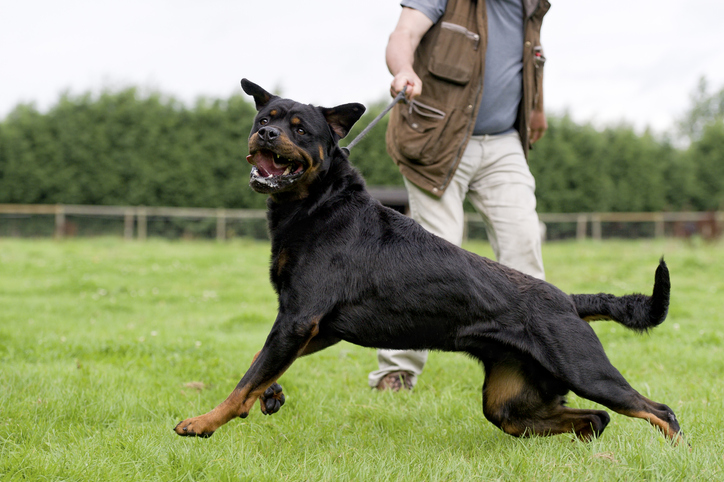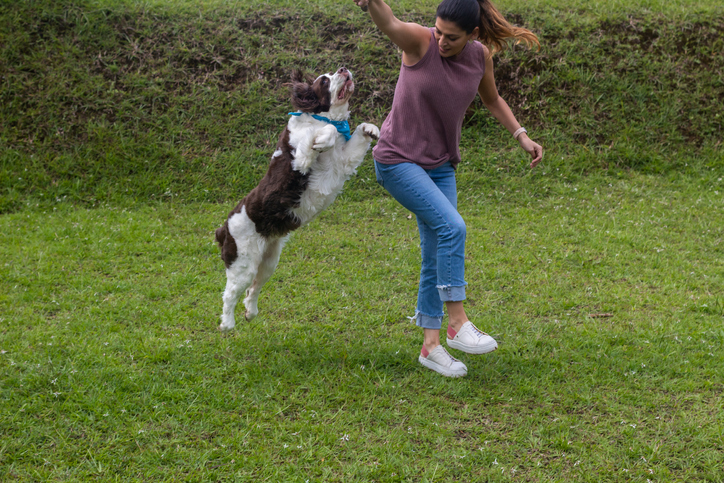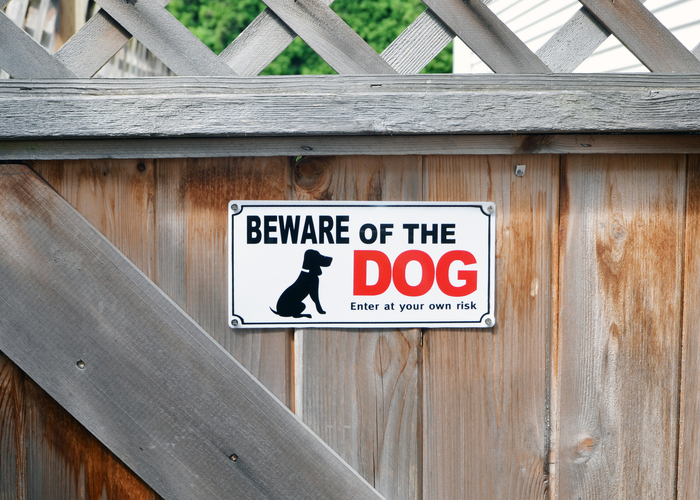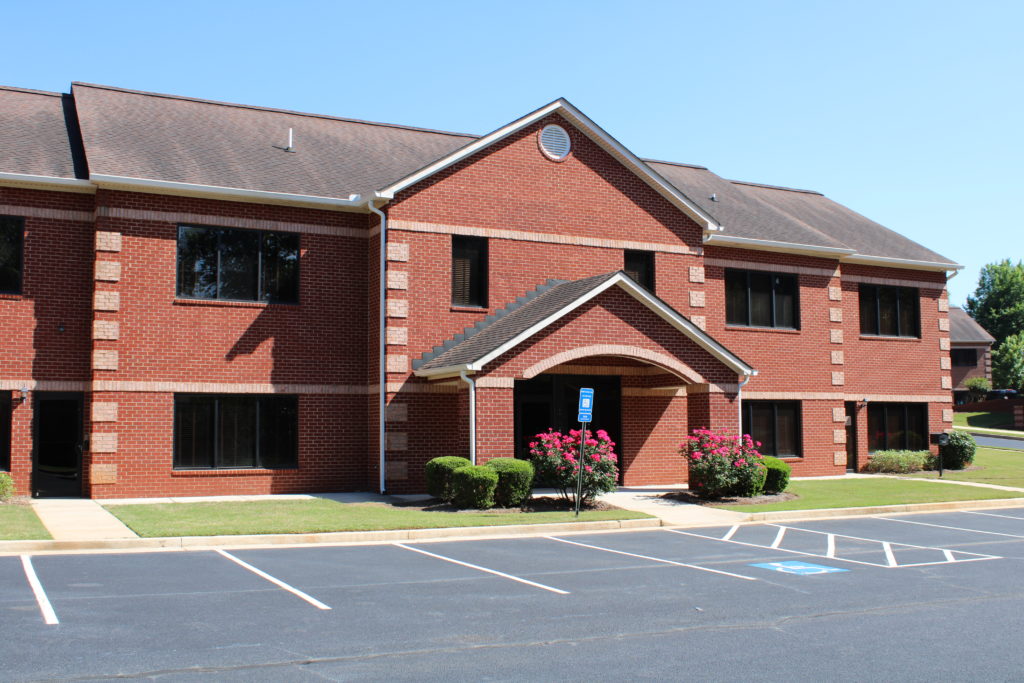
$300,000

$389,000

$400,000
At The Millar Law Firm, our commitment goes beyond representation. We partner with you, delving deep into your case, ensuring every piece of evidence is in place, and negotiating assertively with insurance companies. We vow to be your steadfast advocate, keeping you informed every step of the way. Excellence isn’t just what we pursue; it’s the standard we set for ourselves and our clients.

What To Do Immediately Following a Dog Bite
The moments following a dog bite can be frantic and confusing, but taking the appropriate steps after an attack can help you best position yourself to get the help you need in the future. Follow these steps in the aftermath of a dog bite or attack to ensure you can get the future help you need.
- Seek Medical Attention (Call 911 if Necessary) -Make sure you address any injuries before you do anything else, and make sure to call 911 immediately if the injury is severe. It’s important to get medical attention, even if you think the bite is minor. It’s difficult to know the extent of your injuries without the help of a medical professional. You can read more here about why seeking medical help after a dog bite is important.
- Identify the Dog’s Owner-If the owner is nearby, identify them and gather their contact information. As difficult as it may be, do your best to not express anger.
- Take Photos and/or Video-Photos and/or videos of the dog, the location, injuries, and witnesses will help establish your case. It may be wise to also record your own account of the attack on video, or even in an audio recording to help you later remember the details of the attack.
- Gather Witness Information-Witnesses are easy to lose track of, so gathering their information as soon as you’re able is critical. You can also ask witnesses to record their accounts on video.
- Report the Dog Bite to Animal Control-If you called 911 after the dog bite, there’s a good chance that an Animal Control officer was sent to the scene of the incident to make a report. Similarly, if you seek medical attention, most hospital emergency rooms will report your dog bite to Animal Control, and the office may even come to the hospital. If you have not interacted with an Animal Control officer, make sure to officially document the attack. Atlanta residents should report to Fulton County Animal Control at (404) 612-400.
- Don’t Post to Social Media-Posting about your car accident on social media might seem harmless, but it could end up hurting your case.
Following these steps after a dog bite or attack will help you get the help you need in the future. You should also read the crucial information to collect after a dog bite in Georgia, to help you best collect information that will establish your case.
Dealing with Injuries After a Dog Bite
How do I know if a dog bite is serious?
In most cases, if a dog bite doesn’t break or puncture the skin, it won’t be considered too serious. However, there are some dog bites that don’t puncture the skin that can still cause significant damage, if the dog did a crushing amount of damage when biting, for example.
If a dog bite does puncture the skin there is a risk of infection, and you should seek medical attention immediately. The deeper the bite the greater the risk of infection as well as permanent injuries including disfigurement, nerve damage, and, of course, emotional trauma. For all these reasons we advise seeking medical attention and legal help after a dog bite to help you make the right decisions. Read here about “Why It’s Important to Seek Medical Attention and Legal Help After a Dog Bite.”
A good guide to understanding dog bites is the “Dog Bite Scale,” created by expert veterinarian Dr. Ian Dunbar.

Dog Bite Levels
Veterinarian and expert dog trainer, Dr. Ian Dunbar, created a “Dog Bite Scale” to objectively assess the severity of a wound from a dog bite, described below:
The dog is aggressive, quite possibly growling and bearing its teeth, but it doesn’t actually make contact with the victim’s skin.
Level 2 aggression is when a dog may bite, but the bite doesn’t break the skin. The bite may still leave a mark, however, and can still cause significant damage by crushing a part of a person’s body.
Level 3 bites actually puncture the skin, but only at a shallow level. Dunbar states that level 3 bites go about as deep as half the length of the dog’s canine teeth. Medical experts typically recommend that level 3 bites, where the skin has been punctured, get medical attention.
A level 4 dog bite will be deeper than a level 3, going beyond half the length of the dog’s canine teeth, and possibly causing deep bruising as well. The depth of the punctures and bruising are likely a result of the dog holding on while biting, and possibly even shaking its head back and forth to do further damage.
Level 5 bites are in truth, several level 4 bites on a single person, with each of the bites having punctured the skin at a significant depth, and likely deep bruising as well.
Level 6 is, obviously, the worst-case scenario for a dog bite victim, but thankfully these types of attacks are very rare.
Dr. Dunbar states that most bites, about 99%, are level 1 and 2 bites. Typically, level 3 bites and above should, at minimum, be seen by a medical expert as there is a risk of infection.
When to see a Doctor for a Dog Bite
If a dog bite has broken the skin, (level 3 bite), it may require a tetanus shot to avoid infection. That’s why it’s recommended that you seek medical attention for any dog bite that breaks the skin. Even bites that don’t break the skin however, (level 2 for example), may require a medical examination, as the bite may have incurred some deep bruising or injury unknown to the victim despite not puncturing the skin.
If you are bitten by a dog and also have other medical issues, like a weakened immune system, (i.e. diabetes), or you are undergoing medical treatment, (i.e. chemotherapy), you should see a doctor as soon as possible. If you believe the dog that bit you is a stray or lacks vaccinations, you should also seek out medical attention as soon as possible.
What are the signs of a dog bite being infected?
According to Medical News Today, symptoms of a dog bite infection can include
- swelling and redness around the wound
- pain that lasts longer than 24 hours
- drainage from the wound
- difficulty moving the affected part of the body
- a warm feeling around the wound
There are also signs that could indicate that the infection has spread to other parts of your body, including
- fever
- shaking
- night sweats
Please seek immediate medical attention if you have any of these symptoms following a dog bite.

What about muscle or ligament injuries from a dog bite?
Dogs have the biting strength to severely damage ligaments and muscles, and as such, dog bites should be treated with the utmost seriousness. The best way to avoid long-term or permanent damage is to seek medical attention as soon as possible following a dog bite.
Learn more about the damage that dog bites can cause to muscles and ligaments here.
Yes. Georgia law states that victims of dog bites can sue if a dog bite causes them serious injury. This will require the victim to provide substantial evidence to prove the seriousness of their injuries, in addition to proving the victim did nothing to provoke the attack.
Not exactly. Georgia follows a modified one-bite rule that grants a bit more flexibility to victims of a dog bite or attack.
The “one bite rule” often comes up when discussing dog bites, as it’s a common law that many states have adopted. Essentially, the one-bite rule states that the owner of a domesticated animal is responsible for damages that the animal causes if the owner knew, or should have known, about the animal’s vicious behavior. However, the animal is not considered to be vicious unless it has bitten a person in the past.
This is why it’s referred to as the “one-bite rule.” This rule, in essence, lets animals have one bite before they are considered vicious. If there is a bite in the animal’s past, the owner can be held entirely liable for any future damages the animal causes.
Georgia does not strictly follow the “one bite rule,” but instead has a modified one bite rule that is used in dog bite cases.
In the state of Georgia, a dog owner is liable for a dog bite if the owner knows that a dog is vicious, which is typically determined by the dog having bit someone in the past.
However, a dog can also be deemed as “vicious” under Georgia law, if a dog attack is unprovoked or the owner is considered to be careless, (not having the dog on a leash, for example). These modifications to the “one-bite rule” make it easier for dog bite or attack victims to prove that a dog is dangerous, without having to show the dog has a history of biting.
As seen with Georgia’s modified one-bite rule, you can prove a dog is dangerous without having to prove a history of biting. If the dog has a history of biting, however, it will be much easier to prove your case.
Evidence that could be used against a dog however includes excessive growling, aggressively barking, charging at people or animals, and attempts to get away from the owner to attack another person. Dog owners will state their dog is not aggressive because they don’t have a history of biting, but these types of behaviors can prove otherwise.
Who to Report Your Dog Bite to in Atlanta, GA
Atlanta residents should report dog bites and attacks to Fulton County Animal Control at (404) 612-400.
Guidelines for Fulton County Dog Owners:
If you’re a dog owner in the Atlanta area, make sure you have a good understanding of the requirements that Fulton County places on dog owners, including:
Per Ordinance 34-205(a), dogs cannot roam unrestrained within non-incorporated Fulton County areas or any City therein.
Under Sec. 34-205(b)(1), dogs off an owner’s property must be leashed, with a leash no longer than six feet, and under a responsible person’s control
According to Sec. 34-205(b)(2) to (4), dogs must be fenced in or leashed on the owner’s property. Electronic fences are acceptable unless for a dangerous or vicious dog.
Owners of such dogs must keep them restrained. When outdoors and unattended, they must be in a secure kennel. In public, they should be leashed (max. six feet) and muzzled. Warning signs are mandatory.
Seizure Protocols: Sec. 34-316 states that dogs found roaming or breaking rules can be seized, even if licensed. Owners can reclaim them from Fulton County Animal Control.

Consequences for Disregarding Fulton County Dog Rules
Atlanta dog owners should know that Fulton County takes its dog regulations seriously. Here’s what you might face if you don’t adhere:
- For violations related to public nuisance animals, those found in breach could be charged with a misdemeanor. A second offense attracts a minimum fine of $250, while a third infraction will set you back at least $500. (Reference: Sec. 34-197(c))
- If you’re found not complying with rules concerning dangerous dogs, expect a misdemeanor charge. A second conviction carries a fine of no less than $500, and by the third offense, you’re looking at a penalty of at least $750. (Reference: Sec. 34-197(d))
It’s crucial to stay informed and follow these guidelines to avoid these penalties.

Is Pit Bull Ownership Restricted in Atlanta?
Not at all. While a few neighboring cities within the Atlanta metropolitan region might have regulations restricting pit bulls in specific areas, such as dog parks, or categorizing them as potentially dangerous, the City of Atlanta itself does not impose any limitations or bans on pit bull ownership.
Deadlines for filing a dog bite injury claim in Atlanta, Georgia
The statute of limitations in Georgia for a dog bite case is 2 years from the attack date. In other words, you have 2 years after a dog attack to bring your case forward.
Georgia Modified Comparative Negligence in Dog Bite Lawsuits
Georgia Law states that victims can be found partially responsible for a dog bite or attack if their negligence leads to an attack. For example, if you were attacked by your neighbor’s dog after you entered their yard but your neighbor had clearly posted signage warning about the dog, (i.e. “Beware of Dog”), you may be assigned a portion of the fault in the incident for your negligence.
This does not mean, however, that a victim would not be eligible for compensation. As long as you are less than 50% responsible for the incident, you can recover compensation for damages caused by the attack. It should be noted, however, that your compensation will be reduced for the amount of the attack that you are found at fault for. As an example, if you are found 30% liable for the attack, your compensation would be reduced by 30%.
This is why having an experienced personal injury lawyer in dog bite cases is essential, as dog owners and their insurance companies, will do everything they can to reduce their responsibility for the event.

Evaluating the Worth of Your Dog Bite Case in Atlanta
The worth of a dog bite case in Atlanta hinges on various factors: the gravity of the injuries, the victim’s age, and any lasting scars or disabilities.
On average, dog bite settlements in Atlanta range from $25,000 to $40,000. Nevertheless, cases entailing grave injuries or lasting disfigurements can secure substantially higher amounts. To illustrate, our law firm has achieved settlements spanning from $100,000 to an impressive $300,000 policy limit.
If you’re nursing a dog bite from Atlanta, it’s paramount to consult an adept dog bite attorney promptly. Such a lawyer can demystify your legal rights, guide you on the next steps, and champion your right to apt compensation.

What to do if your child was attacked by a dog
Unfortunately, children are some of the most frequently attacked by dogs given their smaller size and trusting nature. In fact, the CDC states that dog bites are a more significant health problem for children than measles, mumps, and whooping cough combined. They are also more common than injuries from biking, playgrounds, mopeds, skateboards, or ATVs.
In the event of a dog attack on your child, the same steps for what to do immediately following a dog attack, (listed above), still apply, with the first priority being that you need to seek medical attention for your child as soon as possible. Once your child has been attended to, (and the other steps have also been addressed), you can work with an attorney to obtain fair compensation. Learn more about how to obtain compensation when a child is attacked by a dog, here.
Do I need a lawyer for a dog bite in Georgia?
Insurance companies that help cover dog bite incidents, as well as most dog owners, will do their best to minimize your settlement and it’s in your best interest to seek legal representation from experts like those at the Millar Law Firm, to ensure you get fair compensation. Laws in Atlanta, Georgia can be as unique as your dog bite incident, and you need the guidance and experience of experts to help you get the appropriate settlement more quickly.
Building your Dog Bite Case
Building a strong case for your dog bite incident requires you to take the proper steps, ideally beginning by following our steps on what to do immediately following a dog bite, (listed above). These additional steps will help you build the most compelling case possible.
Keep a Daily Journal About Your Life Since the Dog Bite
It will be helpful to your case to keep a daily journal in which you write about the changes in your daily life following the dog bite/attack. You should describe things in detail, like:
- How your life has changed physically, including the level of pain you are experiencing
- How you are treating your injuries, including medications, dosages, medical visits, etc.
- How your physical capabilities have been limited
- How your mental and emotional state has changed since the attack
A daily journal will help document your road to recovery and illustrate the pain and suffering you’ve endured on a daily basis.

What’s the Gold Standard in Evidence for Dog Bite Claims?
Few things are as impactful as video evidence in a dog bite claim. This raw, unfiltered visual record can vividly illustrate the dog’s demeanor, the context of the attack, and the consequent injuries, making it a potent tool in any legal arsenal. Whether it’s surveillance from adjacent properties, clips from bystander smartphones, or public security camera recordings, these visuals underscore your narrative and pinpoint the dog owner’s liability.
However, it’s pivotal to remember that not every case is accompanied by video evidence. The specifics of the incident and the chance of having relevant footage vary. Even in its absence, other foundational evidences—like eyewitness accounts, medical documentation, injury photos, and formal reports—remain instrumental in pinpointing liability and securing rightful compensation.
Follow Your Treatment Plan
Follow your doctor’s orders. Doing so will prove that you were seeking healing, not trying to exaggerate your injuries. If you disagree with the treatment you are being prescribed, consult with your doctor and address your concerns.

Handling the Liable Party’s Insurer
After a dog bite incident you should hear from a dog owner’s insurance adjuster. Be aware that the adjusters represent a company hoping to make as little to no payment as possible. Give them your basic information and have them discuss the situation further with your lawyer. They may ask for a recorded statement but will use what you say to claim you provoked the dog attack or that your injuries are superficial.
Our Atlanta-based attorneys are deeply experienced and knowledgeable in handling these cases and they carry the proverbial load for you, handling emails and phone calls from the parties involved to ensure you get the maximum settlement possible.
Don’t Post to Social Media
This is an important point to reiterate, as it remains true through the course of your settlement. It’s understandable that you would want to share your experience and warn others on how to avoid similar situations. Insurance companies, however, will seek to use social media posts, comments, photos, or videos against you to try and devalue your case. Even if you believe your post(s) to be private, they may be able to gain access to them.
The best practice is to avoid posting to social media about the incident at all until a settlement has been reached and your case is over.
A snapshot of our comprehensive approach to your case:
- Exhaustive Document Review: We meticulously examine the police report, animal control records, 911 call recordings, emergency responder data, ER documentation, and any other pertinent information.
- Witness Testimonies: We will seek out and interview any and all witnesses to the incident, ensuring a complete narrative.
- Medical Insight: By collaborating with medical professionals, we gain an in-depth understanding of the severity of your injuries, which bolsters your claim.
- Insurance Investigation: We’ll pinpoint every insurance policy that might be relevant to covering your losses.
- Proving Negligence: Our team is deeply experienced in investigating and proving negligence by establishing a dog’s history of aggression and a dog owner’s knowledge and mishandling of a dog with aggressive tendencies.
- Settlement Research: Our team will delve into precedent dog bite lawsuit settlements to ensure you get the rightful amount.

We recognize the emotional and physical toll such incidents take. Our mission is to alleviate your stress by securing the compensation you rightfully deserve, allowing you to channel your energy toward healing. Reach out for a complimentary consultation today.
Other Dog Bite Questions
Dog bites are a personal injury claim and thus require a personal injury lawyer.
Not necessarily. Lots of factors come into play, like the sign’s wording and visibility or whether the victim was trespassing at the time of the attack can affect the dog owner’s legal liability.
Read more here to learn how yard signs can impact a dog bite legal claim in Georgia.
In Georgia, there are specific laws and principles that determine whether veterinarians can be held liable for incidents that occur in their offices. The essential factor in determining liability is whether the veterinarian or other staff acted negligently or failed to exercise reasonable care in handling the animal.
Simply put, if their actions, or lack thereof, contributed to the dog bite, they could be held responsible for the resulting damages. You can learn more about how dog bite legal claims work when related to a veterinarian hospital or office, here.
Many state and local governments across the nation have enacted restrictions or bans on certain dog breeds, and it’s crucial that dog owners know what dog breeds are restricted where they live. Keeping a restricted breed will be considered a violation of the law which presents a heightened risk if the animal attacks a human or another animal. Even if your community doesn’t have bans or restrictions, you might still face legal action if your animal harms someone else.
Being aware of which breeds are considered more dangerous is important, but more important is the training and upbringing of the dog. Learn more about what are considered dangerous dog breeds and how you can help your dog learn to not bite here.
Yes, most homeowners insurance policies provide personal liability coverage that protects the insured from negligence claims, including ones arising from a dog bite. However, some homeowners insurance policies may not cover more extensive injuries and damages caused by a dog bite, in which case a dog bite victim and their attorney might need to focus on recovering compensation from the dog owner’s personal liability policy.
Learn more about the role of homeowners insurance in dog bite claims here.
In many cases, if you are bit by a dog while working at someone’s home, including delivering packages, you may be entitled to make a claim under your employer’s workers’ compensation insurance. In the event that you are not covered by your employer’s workers’ compensation insurance, you could very well be covered by a homeowner’s insurance policy, assuming the dog owner was a homeowner.
Many Georgia renter’s insurance policies cover dog bite claims. Landlords may be protected from liability for a dog attack by the “out of possession” rule and premises liability law, but there are some limited exceptions. You can read more about a landlord’s liability in a dog bite case here.
The vast majority of bites come from dog attacks, (about 85 to 90%, according to UpToDate.com), but all bites should be treated with seriousness, following many if not most of the same steps listed above. If you have suffered injury and damages from an animal that is not a dog but is still someone’s pet, you can receive compensation in the same ways you can from a dog attack.
No matter the size of the dog, bites and attacks can be dangerous and lead to infections or other complications. Dog bite victims in Atlanta, Georgia are still entitled to fair compensation, no matter the size of the dog. Learn more about what you should know about small dog attacks here.
Dog Bite Lawyers in Atlanta Can Help You Get Justice
In the realm of legal practice, many law firms diversify their services to such an extent that their experience is diluted. They often append personal injury law to their bouquet of services, diluting their true prowess in this niche.

Why Choose Us?
- Deep Experience: We boast over three decades of unadulterated dedication to personal injury law, ensuring you get the adept representation you deserve.
- Undivided Focus: Our exclusive focus on personal injury law empowers us with both the knowledge and experience to maximize your settlement.
- Transparent Consultation: Begin your journey with a complimentary consultation, equipping you with clarity about your legal pathways.
- Consistent Excellence: Our commitment is vouched for by hundreds of 5-star reviews.

